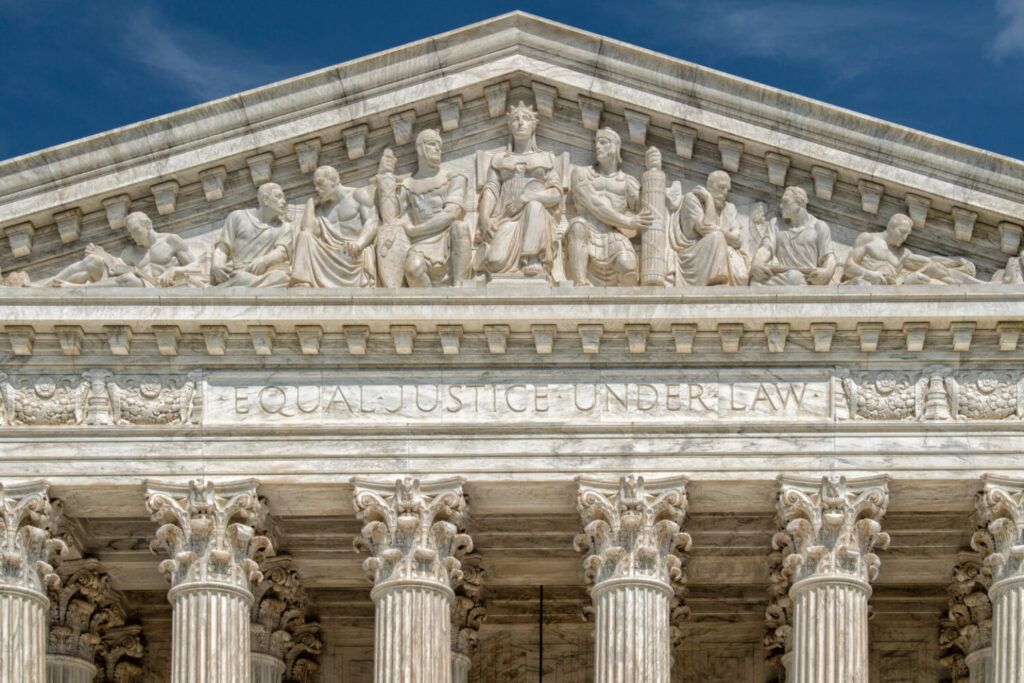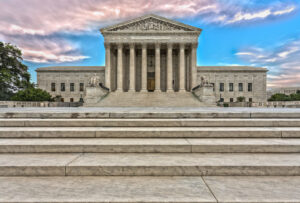Experts say new SCOTUS ruling may reverberate in Michigan education system
(The Center Square) – The U.S. Supreme Court’s Carson v. Makin ruling, announced Tuesday, may crack the door open more widely for Michigan families seeking tuition assistance for their children…

(The Center Square) – The U.S. Supreme Court’s Carson v. Makin ruling, announced Tuesday, may crack the door open more widely for Michigan families seeking tuition assistance for their children who attend private schools.
SCOTUS voted 6-3 in favor of allowing state-provided tuition assistance for Maine parents who send their children to private religious schools. Michigan is another state with a so-called Blaine Amendment, which prohibits the use of public funds for all private schools, whether they’re religious or secular.
“For the second time in two years, the U.S. Supreme Court has recognized the importance of neutrality when providing state funding for educational options,” Patrick Wright, director of the Mackinac Center Legal Foundation and vice president for legal affairs at the Mackinac Center for Public Policy, said in a statement.
“The Court has been willing to protect families’ First Amendment rights, even where modest programs and dollar amounts are involved,” Wright continued. “The nation’s highest court has continued to side with families who faced religious discrimination when choosing different educational options. We are hopeful that these principles will apply in our challenge to Michigan’s Blaine amendment, which was enacted with anti-religious hostility.”
The MCLF is representing five families seeking to use their 529 education savings accounts to help offset the cost of private school tuition. Four of the families have children currently enrolled in religious schools. The case made by the MCLF is the 1970 Blaine Amendment adopted in Michigan is being used as a legal pretext to deny Michigan families full benefits provided by the 2017 federal Tax Cut and Jobs Act.
According to the MCLF, their case relies on four legal arguments:
- Michigan’s version of the Blaine Amendment violates the free exercise clause of the United States Constitution. Parents are being unfairly discriminated against because when a denial is based on their choice to enroll with a private school.
- Michigan parents using 529 education savings accounts at school districts that charge tuition for interdistrict transfers, but not at private schools, is an unconstitutional discriminatory barrier.
- Private secular schools reorganizing as charter schools and receiving public funds is allowed, but private religious schools doing the same sacrifices their core values, beliefs and practices.
- Michigan’s constitution burdens a religious minority with a legal disadvantage in order to obtain an educational benefit that others enjoy, whereas secular institutions are not being discriminated against.
Proponents of the proposed Michigan ballot initiative, Let MI Kids Learn, currently are gathering signatures for this November’s ballot. If 340,047 legitimate signatures are collected and voters subsequently vote the proposal into law, tax credits would be granted for private-school families. The ballot initiative began after Gov. Gretchen Whitmer vetoed a similar legislative effort, the Student Opportunity Scholarship Program, last October.
Last week, Michigan’s State Board of Education issued a resolution opposing Let MI Kids Learn.



